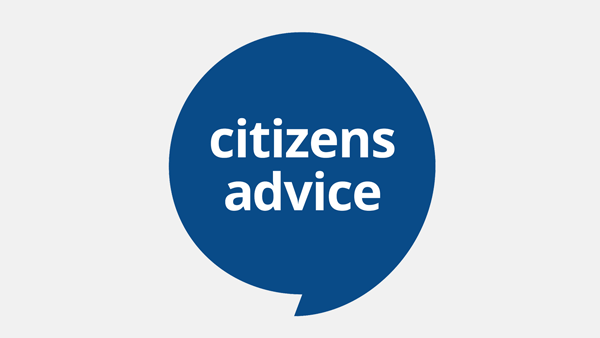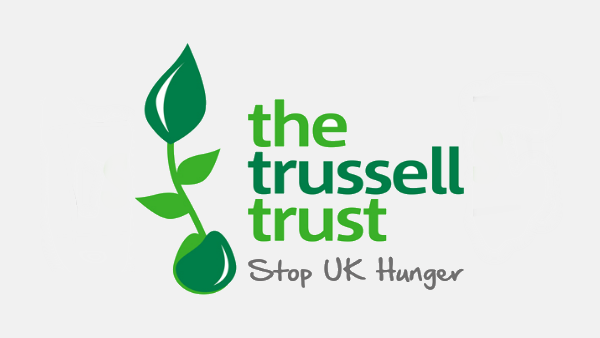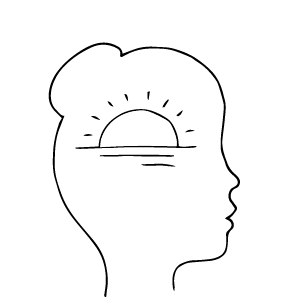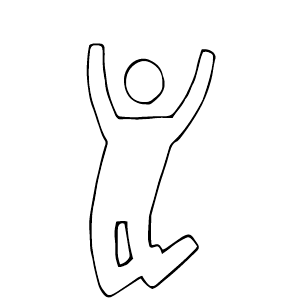Mind and mood
Sleep better
Sleeping well gives you more energy, boosts your immune system and can even help you recover from illness. Regular poor-quality sleep does the opposite and can have negative effects on your body, thoughts, emotions and behaviours, as well as putting you at risk of developing some serious medical conditions.
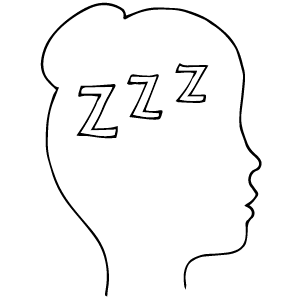
The odd bad night’s sleep can make you feel tired and irritable the next day, but it won’t harm your health. However, regular poor-quality sleep can have a huge effect on your health, putting you at risk of developing serious medical conditions and can affect your body, thoughts, emotions and behaviours.
When you sleep well you feel refreshed. Sleep gives you energy and boosts your immune system, helping your body recover from illnesses. While you sleep your body builds and repairs itself by making new tissue. Sleep also helps your brain to recover and revive itself, helping it make sense of the day, storing your memories and creating new ideas. Sleep allows your mind to unwind and de-stress, helping your mental and emotional wellbeing.
The impact of not sleeping well
Not sleeping well can have a huge effect on your health, putting you at risk of serious medical conditions such as heart disease and diabetes. It can even shorten your life expectancy. Sleep and mood affect each other.
Not getting enough sleep can take its toll on your mind and can even lead to mental health problems, such as anxiety and depression. People who don’t get enough sleep might find they feel depressed, and people who are depressed may find they don’t sleep well enough.
Sleeping less can also make you gain weight. Studies show that people who sleep less than 7 hours a day are 30% more likely to be obese than those who sleep for 9 hours or more.
There are simple things you can do to help you wind down and prepare for bed. Having a regular bedtime routine can help you drift off and, if you or your partner snores, there are ways to minimise snoring. Also limiting your use of technology just before bed and instead reading a book or taking some deep breaths could all help promote a good night’s sleep.

How much sleep?
Most of us need around eight hours of good-quality sleep a night to function properly – but some need more and some less. What matters is that you find out how much sleep you need and then try to achieve it. Good-quality sleep is more important than the amount of sleep that you get and it helps to keep you feeling healthy.
Small steps to build into your day
Stop smoking
You’re probably aware that stopping smoking is great for your health, but what you might not know is that that it can do wonders for your sleep too. Smokers tend to find that they take longer to fall asleep, wake up more frequently and regularly experience a disturbed night’s sleep. This is because nicotine is a stimulant. Find out more about stopping smoking.
Drink less
Although some people have a drink before bed to help them fall asleep quicker, this often causes more problems than it solves. Even if you do manage to nod off quickly, regular drinking worsens the quality of your sleep, making you feel tired and sluggish. Find out more about drinking less.
Move more
If you spend hours lying awake at night, being more active could really help improve your sleep. The more active you are during the day, the more excess energy you will burn off, which should make it easier for you to get to sleep quicker. Find out more about being active.
Eat well
How you eat can have a huge impact on how you sleep. Too much food, especially late at night, can interrupt your sleeping patterns. If you’re having trouble sleeping, it’s a good idea to cut down on drinks like tea and coffee (as they contain caffeine) especially in the evening.
If you can start to reduce the amount of caffeine in your system before bedtime, you should start to see an improvement in your sleep. This is because caffeine interferes with your body’s process of falling asleep and can also prevent you falling into a deep sleep, which can leave you feeling less rested, regardless of the amount of time you spend in bed.
It’s not just tea and coffee that contain caffeine though… fizzy drinks, energy drinks and even chocolate can be full of caffeine too. So try and stick to warm, milky drinks or herbal tea before bed. Find out more about eating well.
Help is available...
You can find out more by visiting the following websites

Samaritans
The Samaritans offer a friendly listening ear on the end of a phone 24/7. The service offers support no matter what your need and helps people with all sorts of things including isolation/ loneliness, anxiety, depression, concerns of life situations or just the need to talk to someone. Call free on 116 123.

Help from the council
Get advice from the council on financial support, foodbanks and deliveries plus housing benefit and council tax.

Life Rooms
Run by NHS Merseycare, Life Rooms offer a telephone and email support service for anyone needing advice on housing, finances, employment, mental and physical wellbeing. The service is available Monday to Friday 9.00am to 5.00pm on 0151 478 6556 or click on the button below for more information.

Talk Liverpool
Talk Liverpool are a free NHS service offering psychological therapies to adults in Liverpool who are feeling depressed or anxious.
Due to the Coronavirus (COVID-19) outbreak, Talk Liverpool is offering telephone and online assessment and treatment.

CAMHS Liverpool
Coronavirus (COVID-19) is affecting all of our lives, children and young people’s mental is as important as ever. Liverpool CAMHS promotes mental health, emotional wellbeing support to children, young people and their families/carers.
Small changes feel good
See how small changes can help improve many areas of your life.


